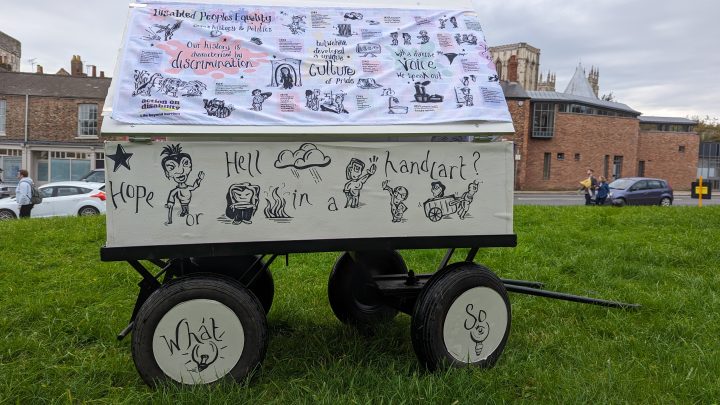‘Care’ is an emotive and under resourced issue that affects all of us. We can do it well and also very badly. At its best it enables a level playing field, it heals, and empowers people to reach for the stars. At it’s worst it is limiting, isolating and torturous. And at the moment it is in crisis.
Yet Disabled people* and their families have achieved much and shown how caring, inclusive and supportive communities can and do work. But careless budget ‘cuts’ and rationing of resources devalue support, that if invested in would otherwise promote independence and inclusion.
Care has multiple meanings too and people talk about care in different ways. Overworked, undervalued professional’s focus on ‘needs’, ‘functions’ and ‘safety’. Whereas ‘frustrated’ disabled people and their families just want to get on with ‘being independent and included’, ‘having a life’, ‘participating, contributing, achieving’.
So what is the future of care? What could it be? What should it not be? How does it work well? How does it fail? What do we need to do to to make it better, now, soon and later?
These are the questions I am keen to ask. And I’ve built a handcart, with a big space on it for people to say and draw what they think, or let me record their voice, take a photo or to tell me and I’ll capture it from them.
I’m going to wheel the handcart around York and talk to people and communities with, or without, an interest in care and disability.
Then once this is done I am going to use the things people have said to create a doodled summary of the themes and issues about how care is now and how it can be in the future.
Involving everyday people, and what they say and think, valuing their contributions about how the future of care can be better or worse is crucial to positive change. And I hope that this approach of a ‘creative, conversational arty cart‘ will help gather some ideas for this. Care’ what ever its form can be better.
To find out more, please do get in touch.
Stephen Lee Hodgkins,
07951050153
@HodgkinsSL
*By ‘Disabled People’ I mean, in the widest sense, those who have diverse bodies and/or minds. That is also, those with impairments that are physical or sensory, or experience mental health issues, chronic illness, long term health conditions, learning difficulties, learning disabilities, autism and associated labels, neurodiversity and other issues.
